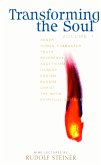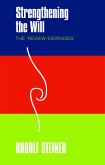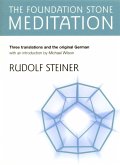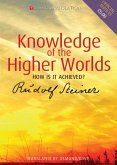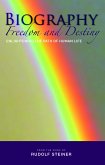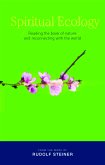In these comprehensive lectures, delivered to an English audience, Rudolf Steiner indicates how it is possible for people to rediscover their connection to the cosmos. He describes how one develops higher faculties of consciousness - what he calls Imagination, Inspiration and Intuition - and gives a vivid description of life after death and the individual's progress through the planetary spheres. It is in these spheres, he explains, where tasks and goals for future incarnations are prepared in cooperation with the spiritual beings of the heavenly hierarchies.
The lectures culminate in a call for mankind to take its own destiny in hand through conscious and free development of spiritual capacities.
The edition of this fundamental work features a revised translation as well as previously-unavailable addresses and question-and-answer sessions.
Dieser Download kann aus rechtlichen Gründen nur mit Rechnungsadresse in A, B, BG, CY, CZ, D, DK, EW, E, FIN, F, GR, H, IRL, I, LT, L, LR, M, NL, PL, P, R, S, SLO, SK ausgeliefert werden.
Hinweis: Dieser Artikel kann nur an eine deutsche Lieferadresse ausgeliefert werden.



